
Featured Blog | This community-written post highlights the best of what the game industry has to offer. Read more like it on the Game Developer Blogs or learn how to Submit Your Own Blog Post
More Business Advice for the Video Game Music Composer
Video game composer Winifred Phillips shares career strategy resources in this article, including: a discussion of what constitutes strong personal presentation for job seekers, networking tips, and best practices for communication with development teams.

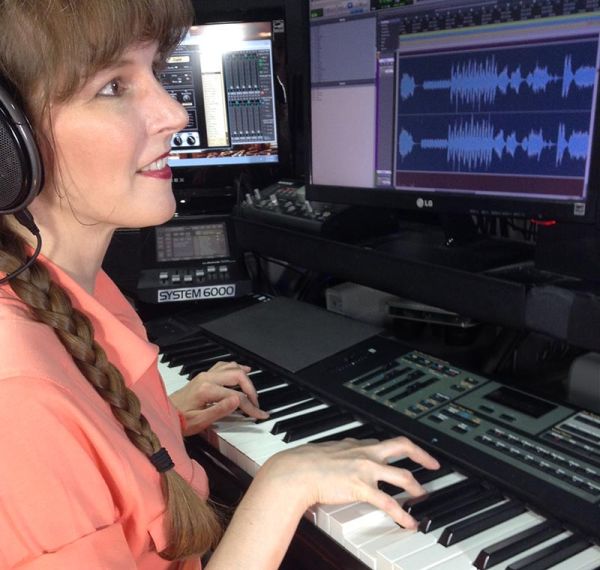
By Winifred Phillips | Contact | Follow
Every so often, I like to grab some time between music composition gigs to gather together the current general wisdom regarding career strategies for game music composers (since so many of my readers are new to the industry and looking for guidance). In this article, I've included some of the stand-out ideas garnered from three online resources - a Gamasutra article by a former audio designer for Rockstar North, an awesome discussion thread on Reddit about effective communication strategies (found in the GameAudio subreddit), and a roundtable discussion at GameSoundCon about best business practices for game audio pros.
Make some noise! Getting a job creating sound and music for videogames
Audio Director Will Morton of Solid Audioworks (formerly a senior audio designer and dialogue supervisor at the famous Rockstar North development studio), has written a comprehensive article for the game industry site Gamasutra about getting jobs in the game audio field. The article, entitled "Make some noise! Getting a job creating sound and music for videogames," focuses on the importance of experience, networking and a polished presentation in order to sufficiently impress a potential employer/client. While much of the article is solid advice that might apply to a job seeker in any industry, a few areas impressed me as particularly interesting for game composers to bear in mind.
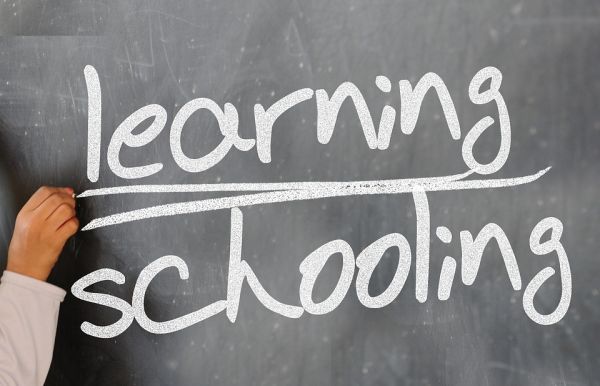 First, Morton suggests that our educational background (which he refers to as our qualifications) is irrelevant when competing for prospective gigs. Morton asserts, "Personally I have never made a hiring decision where an applicant's qualifications have been more than glanced at, and I've never not hired someone because they didn't have any qualifications." Nevertheless, Morton reminds us that we shouldn't neglect our education, although we also shouldn't be solely focused on our grades and our sought-after degree. "The process of studying means you are gaining knowledge, and that knowledge is valuable," Morton remarks, adding that college is an ideal time to build up a portfolio that demonstrates our abilities when applying for work. That being said, Morton reminds us that our portfolios need to consist of material created outside of our assigned college projects, or else our showreels will end up looking and sounding too similar to those of our classmates.
First, Morton suggests that our educational background (which he refers to as our qualifications) is irrelevant when competing for prospective gigs. Morton asserts, "Personally I have never made a hiring decision where an applicant's qualifications have been more than glanced at, and I've never not hired someone because they didn't have any qualifications." Nevertheless, Morton reminds us that we shouldn't neglect our education, although we also shouldn't be solely focused on our grades and our sought-after degree. "The process of studying means you are gaining knowledge, and that knowledge is valuable," Morton remarks, adding that college is an ideal time to build up a portfolio that demonstrates our abilities when applying for work. That being said, Morton reminds us that our portfolios need to consist of material created outside of our assigned college projects, or else our showreels will end up looking and sounding too similar to those of our classmates.
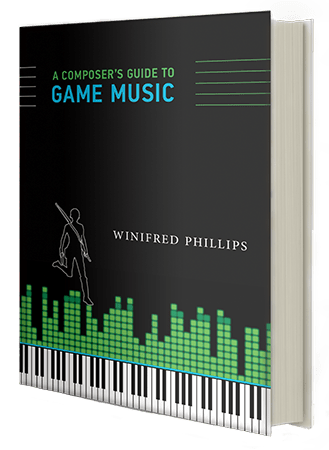 In conducting research for my book, A Composer's Guide to Game Music, I discovered that the educational path a composer takes can vary wildly, ranging from extensive training at formal institutions to self-taught skills obtained through life experience and generous mentors. In my book, I quote renowned conductor Sarah Caldwell of the Metropolitan Opera, who urges us to "Learn everything you can, anytime you can, from anyone you can." This philosophy is in keeping with the viewpoint that audio director Will Morton shares in his Gamasutra article, when he counsels us to focus on the knowledge itself rather than the institutions imparting it. "It's an old cliché, but knowledge is *definitely* power," Morton tells us.
In conducting research for my book, A Composer's Guide to Game Music, I discovered that the educational path a composer takes can vary wildly, ranging from extensive training at formal institutions to self-taught skills obtained through life experience and generous mentors. In my book, I quote renowned conductor Sarah Caldwell of the Metropolitan Opera, who urges us to "Learn everything you can, anytime you can, from anyone you can." This philosophy is in keeping with the viewpoint that audio director Will Morton shares in his Gamasutra article, when he counsels us to focus on the knowledge itself rather than the institutions imparting it. "It's an old cliché, but knowledge is *definitely* power," Morton tells us.
Finally, Morton suggests that we should concentrate on networking during our college years, and networking should include meaningful friendships rather than simple business connections.
 This philosophy also extends beyond college and into our professional lives, as we develop a network of associates in our chosen profession. Morton repeatedly stresses the importance of developing friendships rather than clinical professional alliances. "People like to work with people that they are not only familiar with but that they personally like," Morton tells us.
This philosophy also extends beyond college and into our professional lives, as we develop a network of associates in our chosen profession. Morton repeatedly stresses the importance of developing friendships rather than clinical professional alliances. "People like to work with people that they are not only familiar with but that they personally like," Morton tells us.
Suggesting ways in which we can enlarge our circle of professional friendships, Morton points to top industry events as optimal places to meet like-minded audio pros (GDC, the Develop Conference, and GameSoundCon are all mentioned). He also suggests that popular social media sites can be a great tool for following up with new acquaintances after an industry conference. "If you meet someone new at an event or a conference, connect with them some way (LinkedIn, Twitter, email) and drop them a short message after the event." He also emphasizes the importance of a strong portfolio, and the ability to share our work at a moment's notice. "You can have a Soundcloud account with MP3s ready to give people links to if you need to," Morton reminds us. "It is easier than ever to have your work on-line and accessible from anywhere these days."
Communicating with composers: the GameAudio subreddit

Sometimes we'll find interesting tidbits of information in a community discussion, and this particular Reddit thread turned out to be especially useful. The thread started with the question, "If you were making tracks and sound effects for a given game, how would you expect feedback or direction from a game designer (someone who understands audio only on a basic level)?"
 The question was posed by a game designer struggling to effectively communicate with a composer, and I found this perspective to be especially interesting. As game composers, we'll occasionally struggle to be understood when we're talking with game development folks who haven't trained in music. Seeing the situation from the other side of the fence is both insightful and useful for a game composer.
The question was posed by a game designer struggling to effectively communicate with a composer, and I found this perspective to be especially interesting. As game composers, we'll occasionally struggle to be understood when we're talking with game development folks who haven't trained in music. Seeing the situation from the other side of the fence is both insightful and useful for a game composer.
One of the most frequent tips offered by Redditors in this thread: the practice of sharing temp tracks in order to achieve common ground. Redditor SimpleMusicAnswers gives us a succinct definition of the term: "Find tracks you think sound close to what you want and show them to the composer. These are called temps."
 Beyond simplifying communication, SimpleMusicAnswers also points out that sharing temp tracks can help to clarify the intentions of everyone involved. "Because music is highly subjective, these give directors and composers concrete reference points."
Beyond simplifying communication, SimpleMusicAnswers also points out that sharing temp tracks can help to clarify the intentions of everyone involved. "Because music is highly subjective, these give directors and composers concrete reference points."
"Both the composer and the director can gain from this," Redditor alechungry adds, pointing out that the process of sharing tracks can help the composer and game designer to better understand each other. "The composer gets to know what the designer likes and doesn't like."
 Misunderstandings and communication failures were a common idea throughout the Reddit thread. SamMcA boils down this idea with a poignant worst-case-scenario. "There's nothing more confusing for the composer than when the director says they want more french horns when they are actually wanting more oboes." Elaborating on this, Redditor bstix warns that "using descriptive terms is great if you both agree on what the descriptions mean. If you don't, then it's just as confusing as describing colours with common words."
Misunderstandings and communication failures were a common idea throughout the Reddit thread. SamMcA boils down this idea with a poignant worst-case-scenario. "There's nothing more confusing for the composer than when the director says they want more french horns when they are actually wanting more oboes." Elaborating on this, Redditor bstix warns that "using descriptive terms is great if you both agree on what the descriptions mean. If you don't, then it's just as confusing as describing colours with common words."
One of the most interesting comments came from an anonymous poster. "Make sure that you both are on the same page," the anonymous Redditor remarked, "even if you need to have them repeat back to you what they heard." This comment had some personal resonance for me, as I've found that sometimes members of a game development team find it very reassuring when I mirror back to them what they have been trying to tell me. This can take the form of a short email in which I describe the direction I've been receiving, while putting their descriptions into my own words. This can do a good job of showing the team that I understand what they are trying to say, which helps to further develop a comfortable sense of trust.
 As the Reddit thread progressed, the issue of trust (or the lack thereof) popped up repeatedly. "Presumably you hired the composer because of his/her music and abilities," alechungry observes, "so do listen and respect that vision."
As the Reddit thread progressed, the issue of trust (or the lack thereof) popped up repeatedly. "Presumably you hired the composer because of his/her music and abilities," alechungry observes, "so do listen and respect that vision."
Addressing the lack of trust, SimpleMusicAnswers observes, "It's more endemic at indie levels because designers usually want to control the whole experience, but veteran teams will learn to trust one another to dominate their own piece of the experience."
The entire Reddit thread is well worth reading, and can be found here.
Also, here's an interesting video of a 2015 Sundance Composer/Director Roundtable regarding working with temp tracks. While the conversation is concerned mainly with the use of temp tracks in the film industry, some of the observations are very interesting and applicable to our work as game composers.
GameSoundCon: business essentials

During the 2015 GameSoundCon conference, three pros presented a roundtable on good business practices for game audio folks. The roundtable consisted of audio designer Kole Hicks of Kole Audio Solutions, and two team members from Hexany Audio: lead composer Andy Forsberg and audio director Richard Ludlow. The presentation offered lots of good, practical advice, and I'll be sharing some of the stand-out points here.
 First, the roundtable discussed interpersonal relationships, stressing the importance of creating an honest connection. We should try to speak louder than we normally would, smile more often, and offer a firm handshake. That being said, we should avoid behaving too much like a "car salesman." Our goal should be to create an impression of being "confident, but not cocky."
First, the roundtable discussed interpersonal relationships, stressing the importance of creating an honest connection. We should try to speak louder than we normally would, smile more often, and offer a firm handshake. That being said, we should avoid behaving too much like a "car salesman." Our goal should be to create an impression of being "confident, but not cocky."
The presentation stressed the importance of maintaining relationships after initial meetings, suggesting that we might check in every month or so. Patient persistence should be our goal. Even so, we'll have to be careful to remain personable and friendly: every meeting should not center solely on business.
If the relationship progresses to the point where we're about to embark on a project with a new client, then the relationship dynamics have the potential to radically shift, according to Hicks. "Your experience with the entire process (beyond creating/implementing audio) could be more heavily relied upon by an indie dev than AAA," he informs us, adding that indies may not know what they want for the music of their game, and they may need some hand-holding on our part. When working with triple-A developers, there are other factors to consider. Hicks warns us that triple-A teams may be slow in their communications with us. When they do communicate, however, their ideas regarding the music of their game will likely be clear, concise and firm.
 Whether the developers are indie or triple-A, it's helpful to encourage interpersonal rapport by seeking out more human contact. Although it is possible to conduct all communications electronically, Hicks warns us that "some kind of face-to-face or voice meeting is critical to helping you not only understand a developer's needs better, but it also begins to develop trust."
Whether the developers are indie or triple-A, it's helpful to encourage interpersonal rapport by seeking out more human contact. Although it is possible to conduct all communications electronically, Hicks warns us that "some kind of face-to-face or voice meeting is critical to helping you not only understand a developer's needs better, but it also begins to develop trust."
Finally, Hicks suggests that if we really want to land a particular gig, we may have to spend money to do it. "From personal experience," says Hicks, "I've found that the more I tended to invest in a bid/demo (both time & financially) the higher the percentage that I'd be offered the job. This may mean hiring a session musician or mixing engineer out of your own pocket, but ultimately it can pay off."
After the conference, Hicks posted a summary of their presentation in an article on the game industry site Gamasutra, and the slides from the presentation are available via Hicks' web site. Both are well-worth perusing, and offer lots of advice to consider. This subject matter is also covered in-depth in my book, A Composer's Guide to Game Music (chapter 14, "Acting Like a Business and Finding Work").
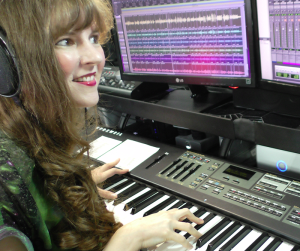 Winifred Phillips is an award-winning video game music composer whose most recent project is the triple-A first person shooter Homefront: The Revolution. Her credits include five of the most famous and popular franchises in gaming: Assassin’s Creed, LittleBigPlanet, Total War, God of War, and The Sims. She is the author of the award-winning bestseller A COMPOSER'S GUIDE TO GAME MUSIC, published by the MIT Press. As a VR game music expert, she writes frequently on the future of music in virtual reality games. Follow her on Twitter @winphillips.
Winifred Phillips is an award-winning video game music composer whose most recent project is the triple-A first person shooter Homefront: The Revolution. Her credits include five of the most famous and popular franchises in gaming: Assassin’s Creed, LittleBigPlanet, Total War, God of War, and The Sims. She is the author of the award-winning bestseller A COMPOSER'S GUIDE TO GAME MUSIC, published by the MIT Press. As a VR game music expert, she writes frequently on the future of music in virtual reality games. Follow her on Twitter @winphillips.
Read more about:
Featured BlogsAbout the Author(s)
You May Also Like
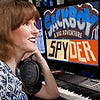
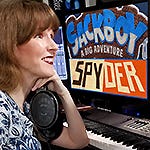





.jpeg?width=700&auto=webp&quality=80&disable=upscale)








